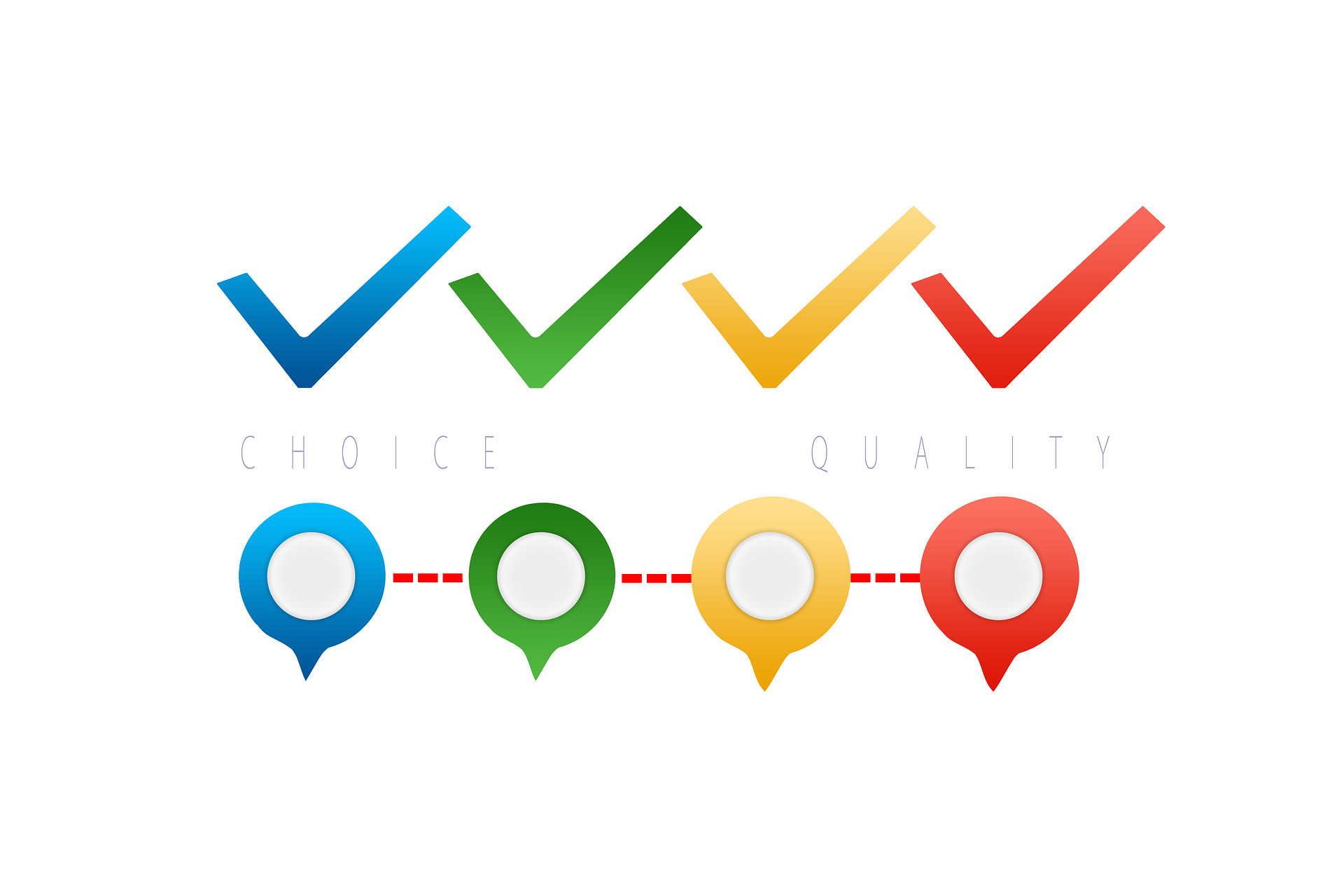Diffusion review the top Google updates from 2010 to 2021
A Decade of Google Updates Reviewed:
With the rollout of Google’s long-anticipated Core Web vitals algorithm update, we thought it would be good to take a look back at the last decade Google updates, how they have changed the face of search and who the big winners and losers have been on the back of them.
What is a Google Algorithm?
Today, there is countless information available online which would make it close to impossible to exactly find what you’re looking for without support sorting through this endless amount of data.
Google’s algorithms are used to retrieve data from its search index and result in delivering the optimal results for our search queries. Users want what they are looking for fast and have no interest in scrolling down through a multitude of search engine results pages (SERPs). Google is ever-evolving and updates its complex algorithms thousands of times each year.
Let’s explore the 10 most important and recent updates, what they mean, and who was most affected by each.

What are the biggest Google algorithm updates from the last decade?
2011: Panda: ‘A Return to Quality’
After the falling quality of Google’s search results made the rounds, Google initiated its Panda update, acting as a search filter that meant to stop webpages with low-quality and repetitive content, poor user metrics, high bounce rates, and a large number of on-site ads from being featured in Google’s top search results and generally reduce their rankings.
Its main targets consisted of so-called ‘content farms’, websites containing large quantities of thin content solely to appear on the top spots of the SERPs. The Panda update was also developed to reward websites with qualitative, strong, and original content, and a compelling user experience by providing better rankings.
“Better content is outweighing more content.”
Most affected:
Winners:
- Youtube.com
- Android.com
- Aol.com
- Tv.com
- Foxnews.com
Losers:
- Thenextweb.com
- Consumeraffairs.com
- Motortrend.com
- Today.com
- Technorati.com
EXPERT TIP:
Block the indexing and crawling of all low-quality content.

2012: Penguin: ‘Combatting Webspam’
The Penguin update targeted webspam as well as manipulative link-building practices as an extension of the Panda update, continuing the war on low-quality websites. Webspam consists of unnatural links, artificial linking, as well as quick link growth.
Google aimed to optimise search results for users, and gain control over and tackle link spam as a result of increasing search results and ranking manipulation; so-called ‘black hat link building and spamming techniques’.
Black hat link building involves gathering a large number of backlinks not considering the relevance or quality of the linking domain. The Penguin update penalised pages that use black hat link-building techniques and therefore challenged low-quality search results.
Most affected:
Winners:
- Tescobank.com
- Marksandspencer.com
- Opodo.co.uk
- Teletextholidays.co.uk
- Guardian.co.uk
Losers:
- Techradar.com
- Icelolly.com (penalised for terms such as ‘cheap holidays’, ’ low-cost holidays’)
- Bestfortravel.co.uk
- Comparethemarket.com (penalised for insurance and financial terms such as ‘compare car insurance’, ’travel insurance’, ’loans’)
- Directline.com
EXPERT TIP:
Create a new link-building campaign with a focus on backlinks with high-quality content.
2013: Hummingbird: ‘Understanding Conversational Language’
The Hummingbird update represents a game-changing evolution in Google’s search technology; it changed the way Google interpreted search queries and has left its mark on around 90% of global search results aiming to make them more intimate and personal.
The update used natural language processing that relied upon latent semantic indexing, synonyms, and coinciding terms enabling Google to serve results that cater to the human side of user intent, taking into account how humans think and use search engines to get results. Hummingbird enabled Google to process conversational language and understand human intent based on location and context.
Moreover, the revamped algorithm put importance on site speed and a well-organised architecture to be precise and fast, hence the name Hummingbird. This was to enable spiders to crawl websites quickly and therefore to provide faster indexing of its pages.
“Think of a car built in the 1950s. It might have a great engine, but it might also be an engine that lacks things like fuel injection or be unable to use unleaded fuel. When Google switched to Hummingbird, it’s as if it dropped the old engine out of a car and put in a new one. It also did this so quickly that no one really noticed the switch.”
EXPERT TIP:
Website content is meant for and should be created with your users in mind, first and foremost. Focus on a user-centric experience!
2015: Mobilegeddon: ‘Mobile First’
This update is all about including mobile-friendly ranking and represents the start of the mobile-first era. Mobilegeddon was Google’s reaction to the rise in mobile searches resulting in extending the use of mobile-friendliness as a ranking signal. Its aim was to improve the user experience by aligning it with user behaviour and market trends.
Google penalised sites using small text and clickable elements that didn’t adapt to different screen sizes such as smartphones and improved rankings of mobile-friendly and responsive websites that followed consumer trends and the cultural shift towards mobile-first. Mobilegeddon represents the foundation for all other changes and improvements to the mobile SERPs.

“Google only loves you when everyone else loves you first.”
Most affected:
Winners:
- Tvtropes.org
- Foreignaffairs.com
- Gq.com
- Change.org
- Radio.com
Losers:
- Reddit.com
- Nbcsports.com
- Songlyrics.com
- Youngmoney.com
- Interviewmagazine.com
EXPERT TIP:
Pare down the content on your mobile site and create a specific and well-placed CTA button.
2015: RankBrain: ‘Machine Learning in Search’
The RankBrain update was revolutionary; it was the first introduction of machine learning in search that builds off the Hummingbird update, aiming to understand the users’ search intent. This update enabled Google to determine the most relevant results to users’ search queries.
It involves an evolution of reading literal characters in the search queries to seeing the entity of what they represent to understand the searchers’ true intent of their search, including factors such as the location, language, and search history of the searcher to add an extra level of personalisation to search results. Most affected by this update were websites not providing context information or not making use of related terms.
EXPERT TIP:
Write conversationally and rethink how content uses keywords.
2018: Medic: ‘Trusting Content’
As the name suggests, the Medic update affected Your Money or Your Life (YMYL) websites that are based on health, medical and life-altering topics. Its aim was to implement new ranking factors resulting in more precise, trustworthy, and qualitative search results around money and health-based terms.
Google penalised websites in those categories that were making medical claims or gave medical advice without any scientific backups. Websites must have Expertise, Authority, as well as Trust signals (EAT) to keep their rankings high; they must substantiate their claims with medical studies (expertise), affiliate with regulatory bodies (authority), and link to trusted medical sites (trust).
Most affected:
Winners:
- Carfax.com
- Rent.com
- Sciencedaily.com
- Glassdoor.com
- Businessinsider.com
Losers:
- Prevention.com
- Patient.info
- Minted.com
- Verywellhealth.com
- Forever21.com
2019: BERT: ‘Understanding Context’
The BERT update represents a fundamental change to Google’s Hummingbird algorithm and impacted 10% of all searches. It stands for Bidirectional Encoder Representations from Transformers and it was aimed to better understand users’ search intent and assess the way words in a search related to each other, particularly in conversational search, by improving Google’s Natural Language Processing (NLP) framework.
BERT enabled Google to consider the context of a word by looking at words that come before and after it and therefore resulted in better understanding the intent behind search queries. The update rewarded well-written, constructed, and formatted content looking at users over search engines.
Most affected:
Winners:
- Mercurynews.com
- Excelhighschool.com
- Grinebiter.com
- Lavanguardia.com
- Gnc.com
Losers:
- Gasbuddy.com
- Frenchbulldogrescue.org
- Emergencyvethosp.com
- Remax.com
- Firstcitizens.com
EXPERT TIP:
Prepare for conversational searches and get the context right.
2020: Google January 2020 Core Update: ‘Back Up Your Content’
This update was an extension of the Medic update and mainly impacted search results and websites in the health and finance sectors with YMYL content on a global scale, penalising those displaying less credibility and trust from backlink profiles and rewarding those with high-quality content focusing on EAT signals. The update was all about domain level trust and encouraged creative, engaging, and substantiated content.
Most affected:
Winners:
- Thehill.com
- Verywellhealth.com
- Asos.com
- Craigslist.org
- Health.com
Losers:
- Lexico.com
- People.com
- Foxbusiness.com
- Boxofficemojo.com
- Mirror.co.uk
2020: Google May 2020 Core Update:
Google’s second 2020 broad core algorithm update again focused on Medic and EAT signals and instigated content factors, user data, as well as content as key ranking factors.
Most affected:
Winners:
- Pinterest.com
- Lexico.com
- Addictionsandrecovery.org
- Whfoods.com
- Farfetch.com
Losers:
- Spotify.com
- Mediaite.com
- Nypost.com
- Theguardian.com
- Thefederalist.com
2020: Google December 2020 Core Update:
Google’s final substantial core algorithm update in 2020 was focused around content interpretation as well as search intent and mainly impacted new sites and references, making SERP features more prominent.
Most affected:
Winners:
- Ebay.com
- Facebook.com
- Linkedin.com
- Youtube.com
- Instagram.com
Losers:
- Amazon.com
- Overstock.com
- Booking.com
- Cnn.com
- Newsbreak.com

“Treat Google like a mountain. You can climb the mountain, but you can't move it”
For mid-June 2021 Google announced its Core Web Vitals Update. Core Web Vitals are metrics that track a website’s loading speed, its on-page visual stability, as well as the time it takes before someone interacts with the page. Google will start to use page experience as part of its ranking systems.
Initially, Google penalised websites that tried to fight the system and now evolved to drilling down into user experience and engagement as key ranking factors.
As the web evolves, and with Google very much at its center, it is important that websites maintain the standard as dictated by the powers that be. Google sets the standard and organic search accounts for almost 60% of most businesses traffic. So whilst you may think that SEO isn’t an important channel for your website, and even if the majority of your organic traffic comes through ‘branded’ search (i.e. users including your brand name in the search query), you have to make sure you’re meeting the basic website standards.
We’re here on hand to help with this and one of our search specialists would be delighted to make sure your website is operating as it should > Get in touch now…..




